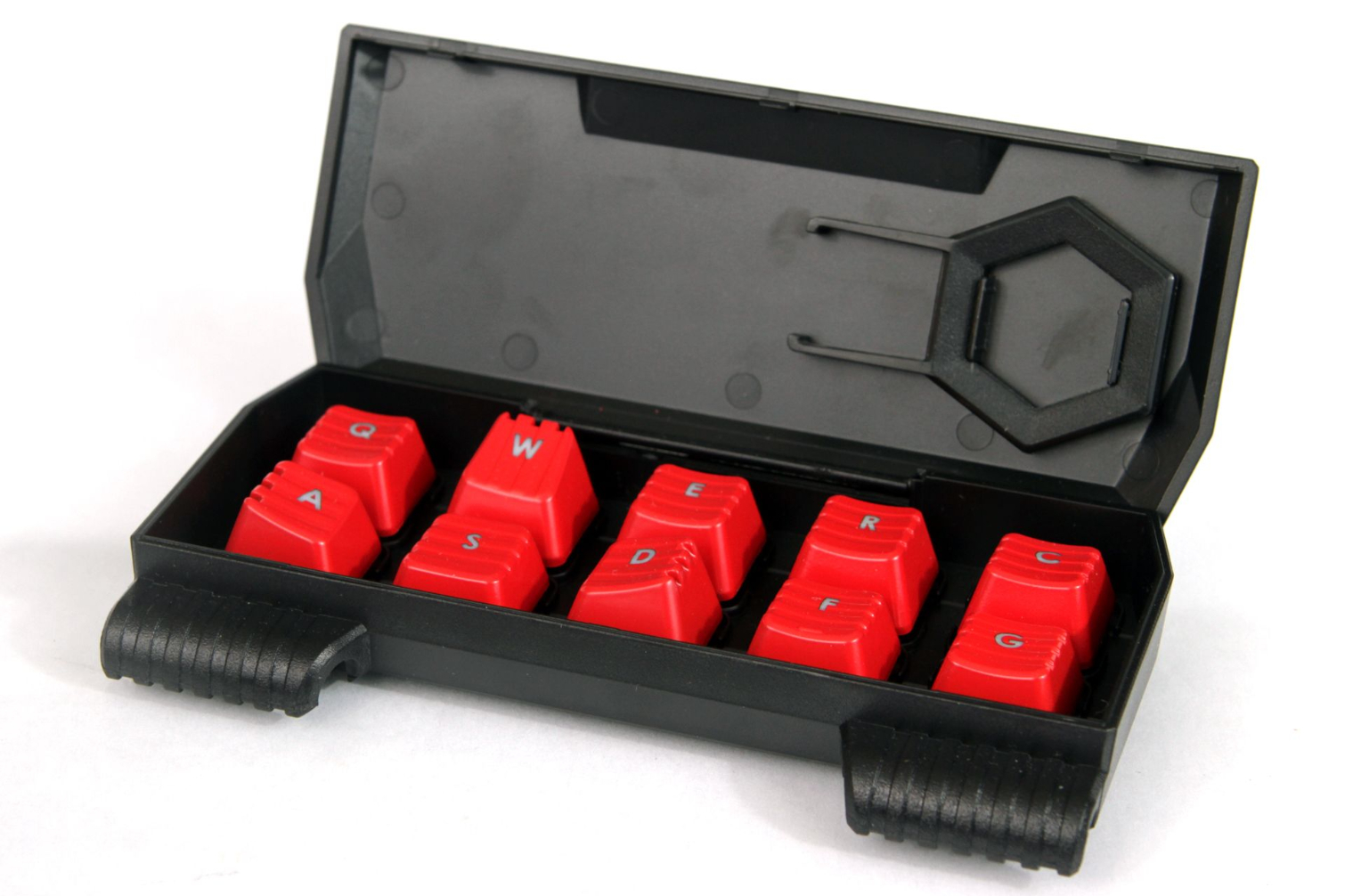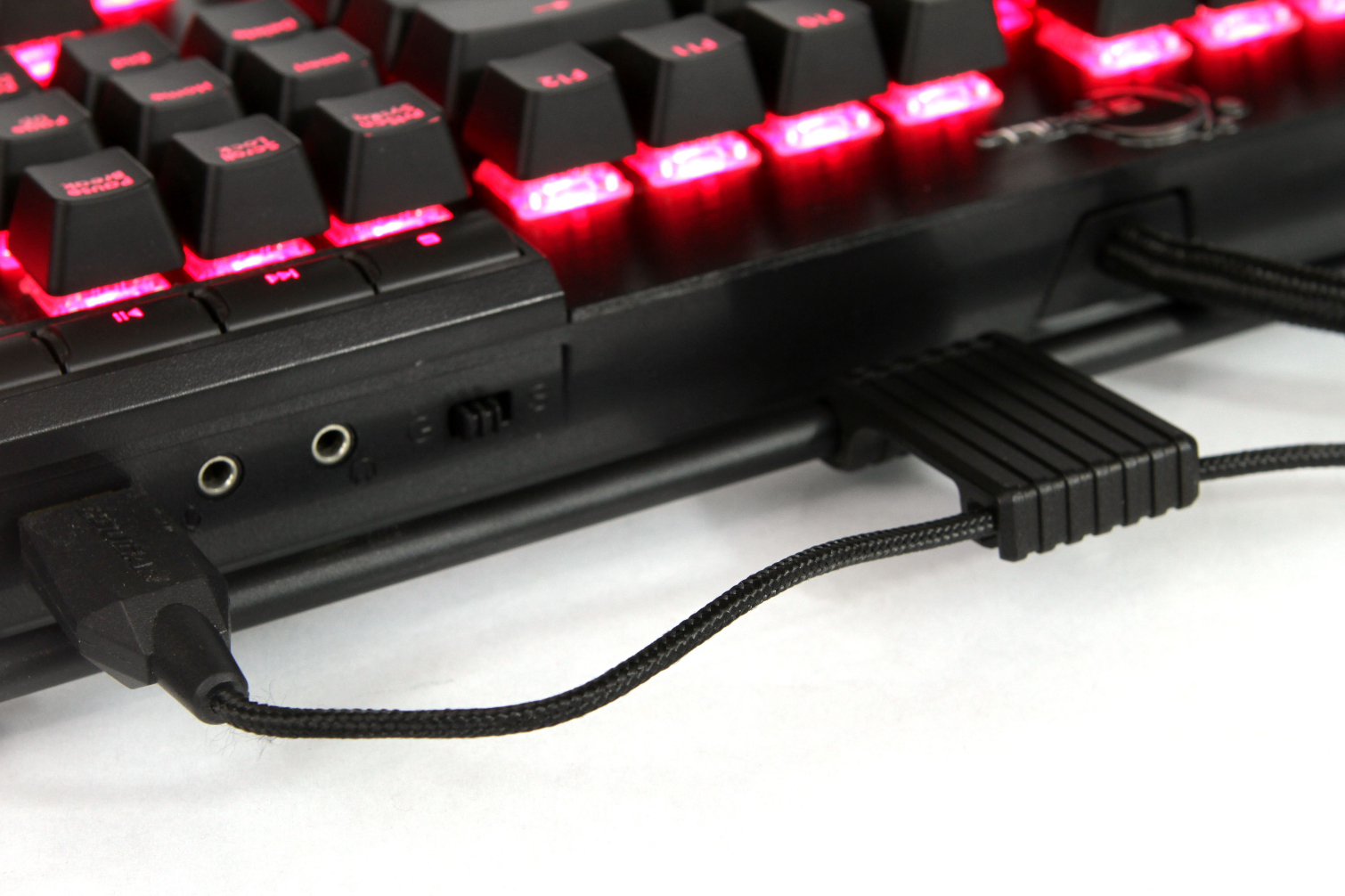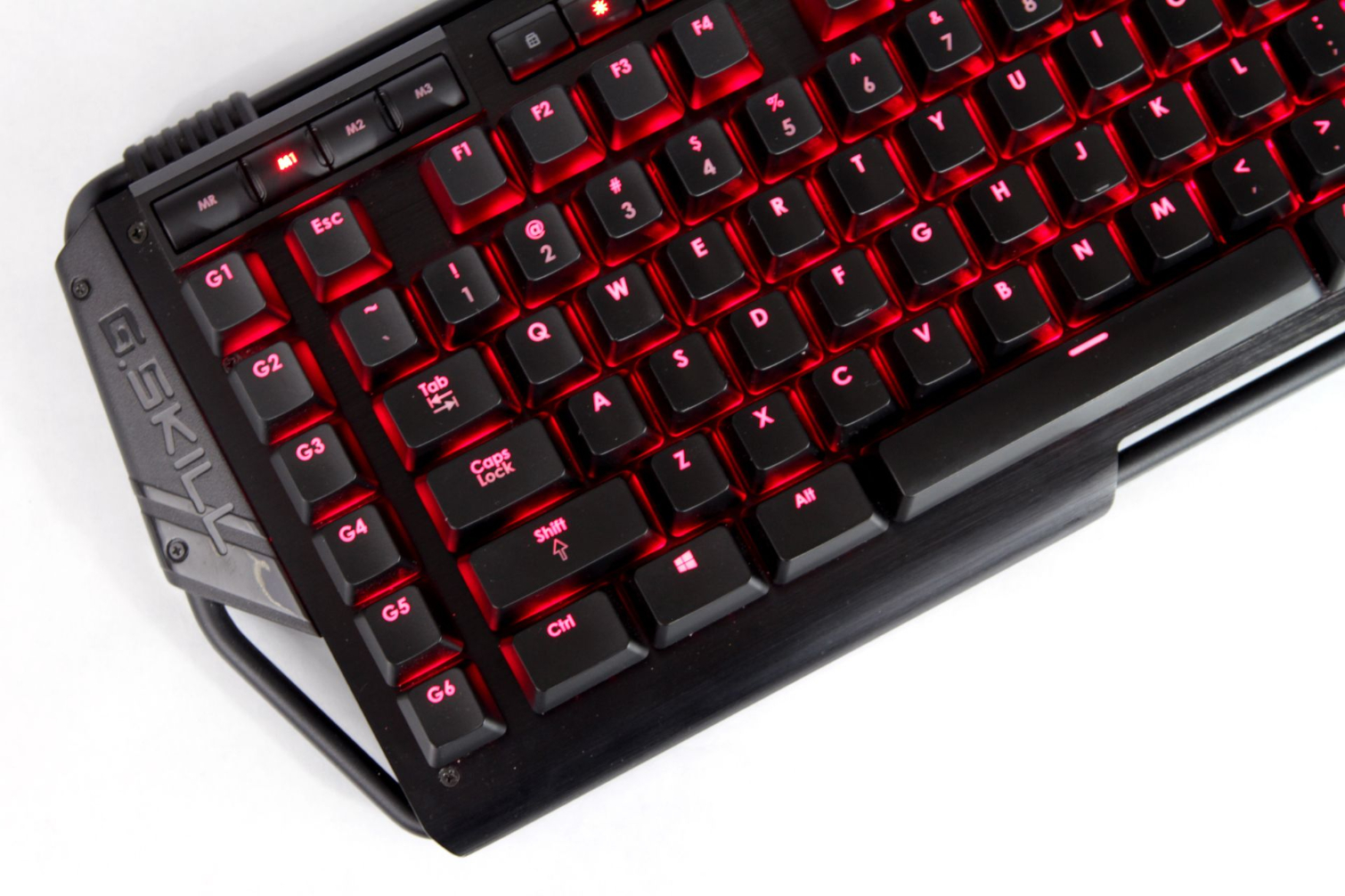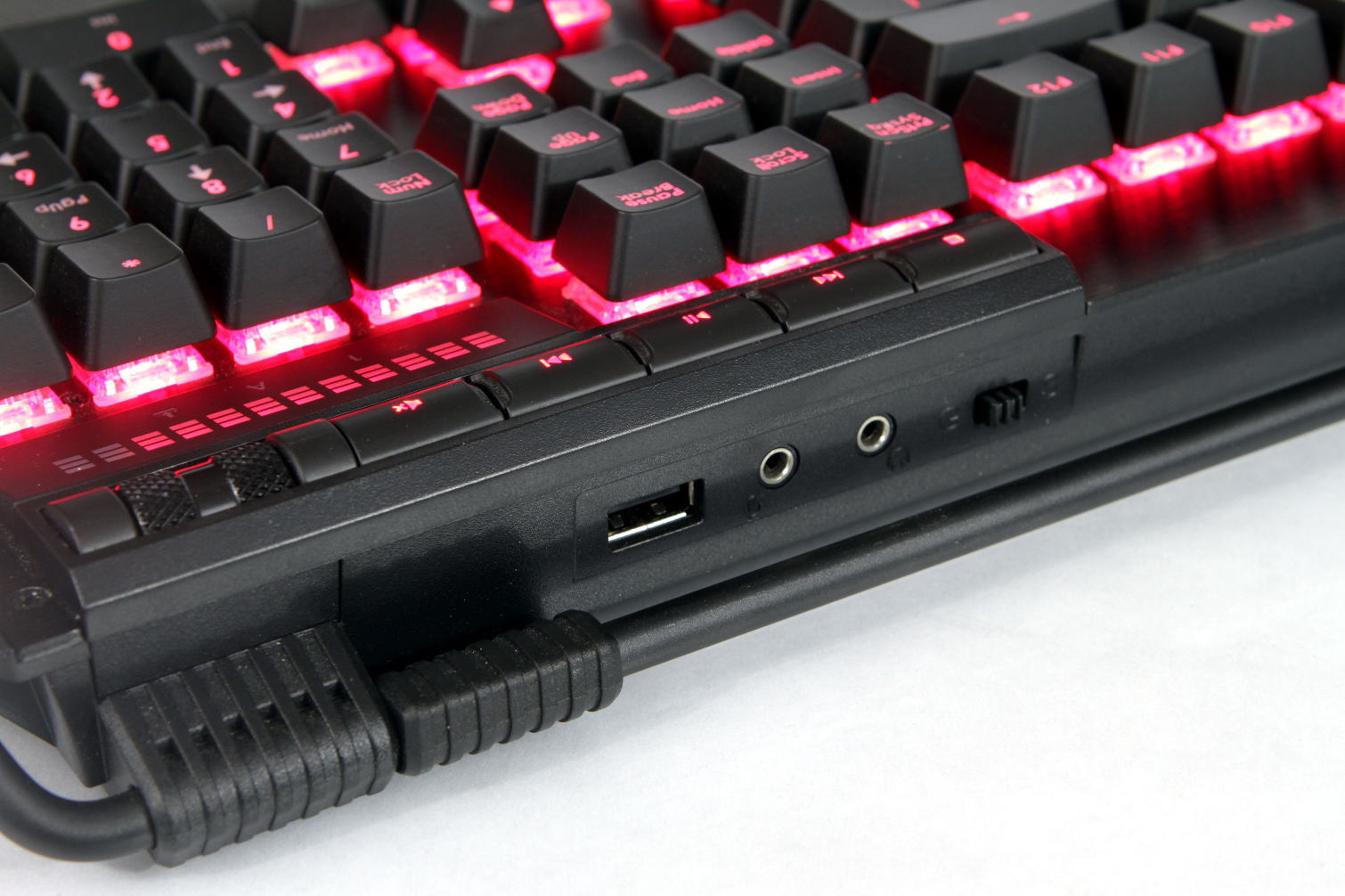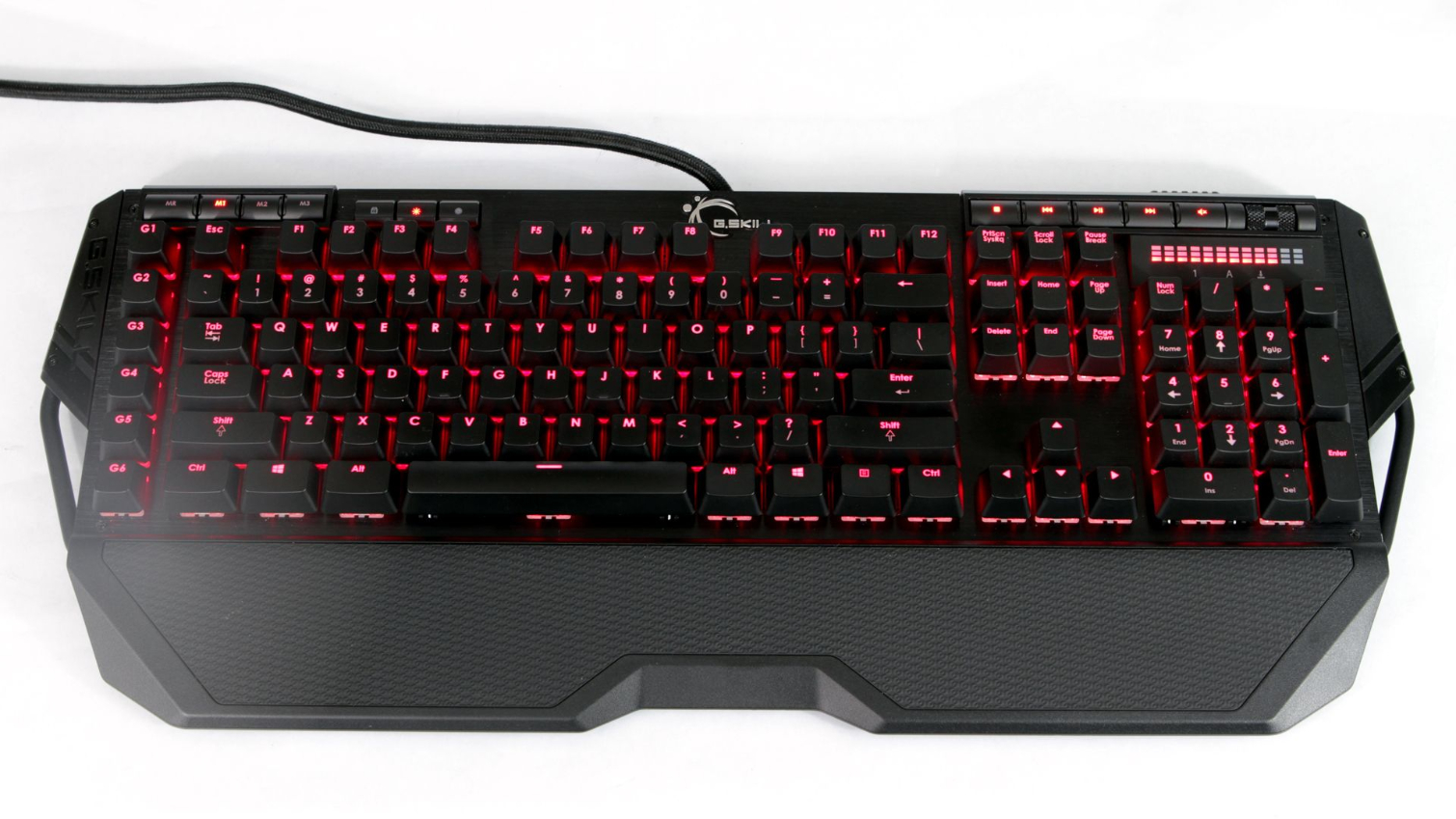Early Verdict
The G.Skill KM780 is a fully-loaded keyboard, dressed to the nines with numerous attractive extra features, full software support, and excellent build quality.
Pros
- +
Excellent build quality
- +
Loaded with extra G keys and dedicated buttons
- +
Software support
Cons
- -
Slightly non-standard bottom row
- -
Large size requires extra desk space
- -
Poor backlighting on secondary characters
Why you can trust Tom's Hardware
Features & Specifications
With its Ripjaws KM780, G.Skill went all out on the bells and whistles, including creating a funky overall chassis design and loading the thing up with additional keys.
As far as putting a dent in the keyboard market, the KM780 shows G.Skill’s willingness to try something risky even as it flexes its muscles as a budding peripherals maker.
The question we need to answer here is whether G.Skill can create a top-notch keyboard.
Specifications
G.Skill has several iterations of the KM780 available, and it’s important to parse them out here. The unit we reviewed is the highest-end possible: the KM780 with RGB switches and the extra keys. We looked at the model with Cherry MX RGB Brown switches, but you can also get a unit with Cherry MX RGB Blues or Reds. They all cost $170 MSRP.
A step down, you can roll with the single-color (red only) KM780 with standard Cherry MX Red, Brown, or Blue switches. Those models cost $130.
There’s also a whole series of KM780R keyboards, which is the same as the above but without the extra key caps. Three of the KM780R models have RGB switches ($160), and three have standard Cherry MX switches and single-color LEDs (red), and they cost $120.
Oddly, all of the single-color LED models mentioned above have silver-colored roll bars and dedicated buttons instead of black.
Get Tom's Hardware's best news and in-depth reviews, straight to your inbox.
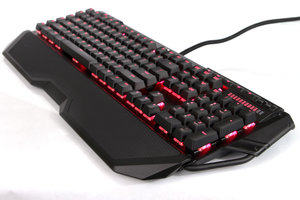
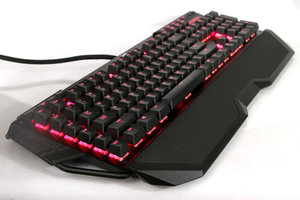
With the KM780, G.Skill really went for it on the design. In addition to being loaded with extra keys and dedicated media & lighting buttons, it’s rimmed with a rolled metal bar that juts out rather far on the left and rights sides of the keyboard. There’s also a large, removable wrist rest with a slightly rubberized finish, and when the keyboard is fully dressed, it’s rather wide and large.
Unless you have ample desk space, you may find that the KM780 crowds your mouse and possibly other items. Some will certainly find this huge keyboard to be garish and over the top, but I imagine that others will love it. After all, the rolled bar is not merely decorative; the wrist rest attaches to it, as does the box containing the extra key caps (more on that shortly), and there’s a mouse cable bungee that’s attached to the bar as well.
In fact, because of the bar, you can slide the bungee all across the top edge of the keyboard for optimal placement. There is no additional cable routing underneath the KM780, but with the bungee, you won’t miss it.
There are two small feet under the KM780 that flip up to provide a steeper typing angle. They’re hard plastic, with no rubber tips. If you have a particularly slippery desk surface, this may cause an issue. Without the feet up, though, there are four rubber pads under the keyboard (and two under the wrist rest) that should provide a solid no-slip grip.
The switches are mounted onto a sharp-looking black, anodized brushed aluminum top plate, a la Corsair. In addition to the standard 104 keys you’d expect, G.Skill added a vertical row of six G keys on the left side (adding to the aforementioned width of the KM780). If you have reasonably large hands, you should be able to hit some of them with your pinky while gaming easily. However, you’ll have to lift your hand from the WASD keys to to reach the ones at the top and bottom of the column.
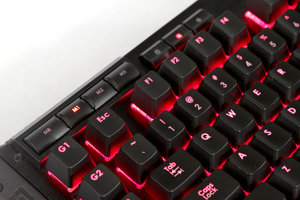
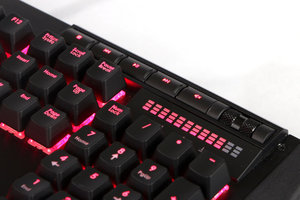
On the upper left, there are four dedicated macro buttons, and next to that are three more buttons: a Windows lock key, four-stage LED backlight brightness toggle button, and a timer key. (Yes, a timer key. More on that in the Software section.) On the upper right side are several media buttons (stop, play, forward, back, mute), including a diecast metal volume roller. All of those keys and buttons are LED-backlit. Below them is a large light bar that helpfully indicates volume level.
G.Skill included one USB passthrough port, but it also included two audio passthroughs for your headset/mic. Next to that is a little switch labelled “G” on one side and “S” on the other. When switched to G, the keyboard will be in NKRO mode; when switched to S, it will be on 6KRO (you may want to adjust this depending on what your PC supports).
The bottom row of keys is unfortunately not standard. Just like the Cougar Attack X3, the three modifier keys on the left (Ctrl, Windows, Alt) are each slightly wider than 1.5u instead of 1.25u, reducing the overall width of the spacebar to 5.5u instead of 6.5u. The four keys to right of the spacebar (Alt, Windows, Menu, Ctrl) are standard 1.25u.
For some typists, any deviation from the norm is going to be problematic, and it’s unclear why Cougar and G.Skill would bother with the change. Many of us, though, won’t notice much of an issue; I for one did not.
MORE: Best Deals
MORE: How We Test Mechanical Keyboards
MORE: Mechanical Keyboard Switch Testing Explained
MORE: All Keyboard Content
Seth Colaner previously served as News Director at Tom's Hardware. He covered technology news, focusing on keyboards, virtual reality, and wearables.
-
cryoburner Reply19621208 said:For some typists, any deviation from the norm is going to be problematic, and it’s unclear why Cougar and G.Skill would bother with the change.
It might be to make the Alt key a bit more reachable, particularly for gaming, where you may want to use Alt as a secondary thumb function while keeping your fingers on WASD. -
KenMarley One of the most primitive macro software I've seen for a gaming keyboard. Software very unstable, had to reinstall it after every reboot just to be able to open it up.Reply -
Trolling4Dolars I have tried many keyboards over the years, and my KM780 MX, Blue switches, red backlight is my favorite. I like it so much, I purchased another one for work (with my own cash). The 6 G keys and the volume roller are my top features. I have a 8' wide desk, so the large size is not a problem. I give it 2 big thumbs up.Reply -
Realist9 Still waiting on someone to release a new version of the zboard fang. IMO, the best gaming keypad ever made. The keys were physically distinct and made if very easy to know which one you were hitting, just by feel. The layout also helped make sure you were hitting the right keys. Now they want almost $200 used, IF you can find one. Ridiculous. Why can't someone make an updated version of the Fang???Reply -
SBMfromLA I also have the Fang Zboard. I remember picking it up at Circuit City on a closeout sale for $20. It's sitting under my desk.Reply -
bgunner I personally have this keyboard myself, MK780 red LED with MX red switches, and would like to mention a few things that were not mentioned in the article or possibly mentioned wrongly.Reply
As for the N-Key roll over switch on the back of the keyboard and the software. In the software you are not able to select what the N-key rollover is set to but it does display the current position it is set to. I urge you, Scolaner, to try this and find out for yourself.
The Volume LED indicator doesn't seem to rise with the volume IF the volume is adjusted by Windows or a program that can control the volume, Creative control console as an example. It only registers if the volume wheel is physically moved. Did you notice these anomalies while testing?
EDIT: After a bunch of testing and a reset of the OS It was found that in order for the volume LED indicator to work properly the G.Skill software must be run at startup. IF it is not running then the LED does not register the volume change if it is changed from inside the OS. The N-Key rollover selection as mentioned earlier still stands. The reason for this is it is a manual switch and has no motorized mechanisms to flip the switch when a different selection is made inside the software. The way the following is written it says you can adjust teh N-Key rollover from within the software which is not the case.
Under the Setting tab, you can adjust the polling rate to 125Hz, 250Hz, 500Hz, or 1,000Hz; toggle between NKRO or 6KRO; and create sleep and timer settings (for which you can add a lighting effect, because why not).
-
bgunner Reply19621786 said:One of the most primitive macro software I've seen for a gaming keyboard. Software very unstable, had to reinstall it after every reboot just to be able to open it up.
Odd I have never had an issue with the software for the MK780 myself. This points more towards compatibility issues. If you want to speak of primitive Macro software try using what came with my old keyboard from Saitek, the original Cyborg. -
Realist9 Reply
I use mine every day. You should put yours up for sale on fleabay or something. Someone will buy it. I'd buy one as a backup, but people asking $200 kinda stops me.19623859 said:I also have the Fang Zboard. I remember picking it up at Circuit City on a closeout sale for $20. It's sitting under my desk. -
firefyte I'd like to know (in all KB reviews) what layouts and country options they have available. I'd rather not have to search the manufacturer's website to find out if I can actually purchase the KB.Reply
